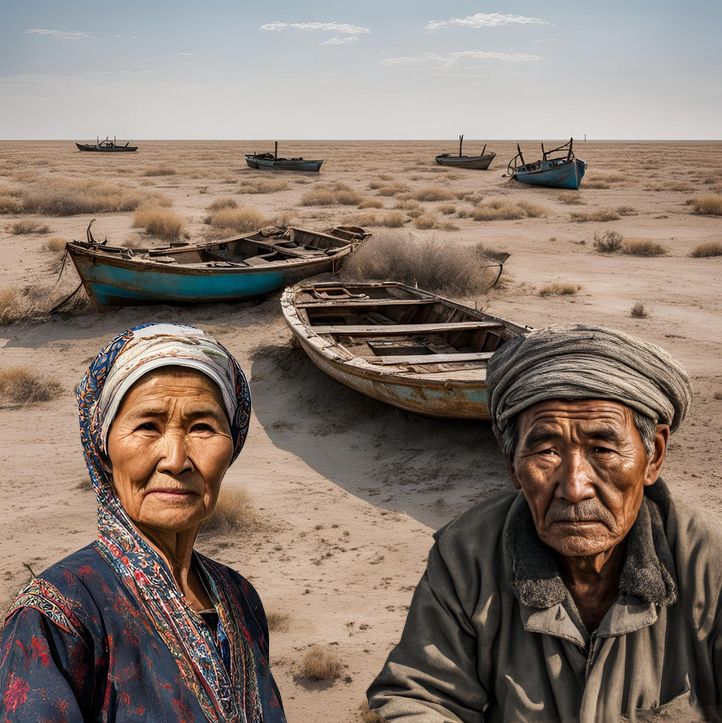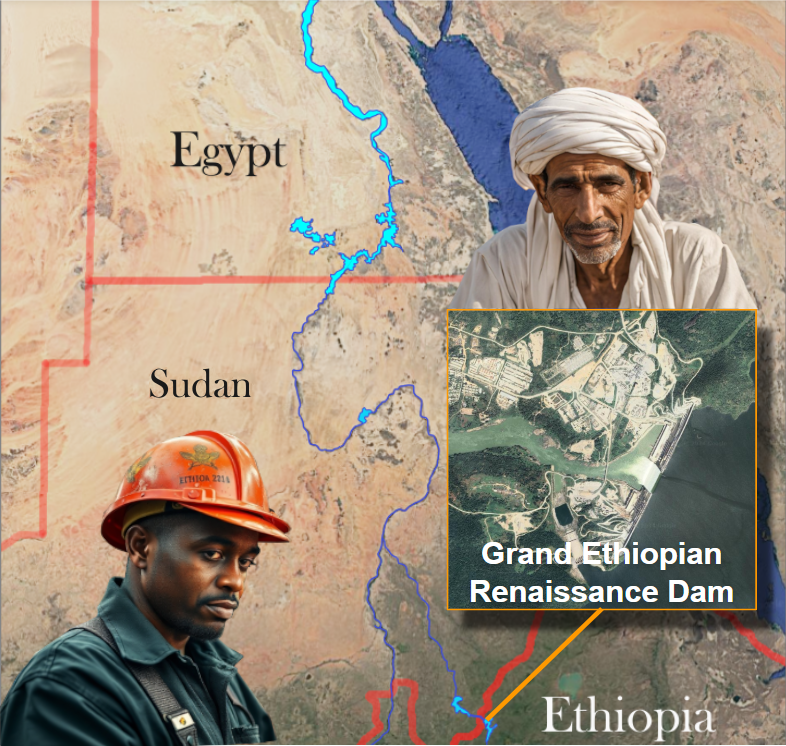9.1 Dwindling Water
backWater is essential for everything—growing food, making things, and staying healthy. The future might look a bit different, but by being smart about how we manage water, we can hopefully avoid wars over it. 🌍💧
In the 21st century, it’s not about the countries that have no water fighting over the little they can find. Instead, it’s actually the water-rich countries—those that have plenty of rivers, lakes, and rainfall—taking water from the countries that have very little to survive. This might sound strange, but it's already happening! Let's see some examples of conflict and hear the voice of people who are affected the most.

In the 1960s, the Soviet Union diverted the Amu Darya and Syr Darya rivers to irrigate cotton fields in the desert. This drastically reduced the water reaching the Aral Sea, causing it to shrink and leading to environmental disaster. Now, Kazakhstan and Uzbekistan (ex-Soviet Union member countries) compete over these rivers.

The Nile is Egypt’s lifeline, but Ethiopia’s construction of the Grand Ethiopian Renaissance Dam (GERD) threatens to reduce water flow downstream. Ethiopia argues the dam is essential for its development, while Egypt fears it will lose access to vital water supplies. Sudan, caught in the middle, sees both benefits and risks.
We need electricity to power our homes and industries. The dam is about lifting our people out of poverty. We aren’t stealing water; we’re just using our fair share for the first time in history.

A long time ago, people decided how much water everyone could take from the Colorado River. But they promised more water than the river actually has. Over the years, the river’s flow has become smaller because of climate change (the world getting hotter and drier). Now, places like California, Arizona, Nevada, and even Mexico, which needs the water for farms, are arguing over who gets how much.
Our state feeds the nation, and we need water to grow crops. We’ve been using the Colorado River for decades, and our rights should be respected. Why should we suffer because other states wasted their water?
We’re downstream, and we get what’s left, often polluted and barely enough to irrigate our fields. The U.S. must honor its agreements and ensure we get clean water. It’s a matter of survival for us.

India has built dams on the Ganges and Brahmaputra rivers to control how much water flows through. This helps India use the water for its farms and people, but it means less water flows down to Bangladesh, especially when there isn’t much rain. In Bangladesh, people need the water to grow food, catch fish, and live their daily lives, so having less water makes things really hard for them.
We need to control floods and generate power for millions of people. The water comes from our territory first, so it’s only fair that we use it. We’ve also helped Bangladesh during floods, so we’re not being unfair.
Our crops are failing because the water we used to get is now blocked upstream. We depend on these rivers for our food and income. India should share the water fairly. It’s not theirs alone.
